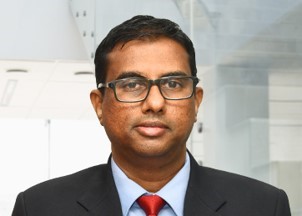
By Madhura V. De Silva- Partner Business Advisory BDO Partners
ESG (Environment, Social and Governance) has obviously become another buzz word in the corporate world. Sustainability concepts will make the pace of change which is the only thing permanent, slow and steady. Thanks to our ancestors who had a strong affiliation with ecosystems, we as Sri Lankans have at least a proud history that we can talk about. Our agriculture-based economy that had been in existence for more than 2000 years with irrigation systems that are engineering marvels to even modern-day engineers, clearly prove the existence of sustainable development practices in our country centuries ago. However, after many perturbations in the history of our country, we are still struggling to bring back that sustainable development we had many centuries ago. The situation got further worsen with industrialisation, globalisation and with weak political leadership of the country since we gained independence. I always believe sustainability is nothing new to this country, but now it has become something new that we are compelled to learn and adopt from the first world, but I would consider this as a blessing in disguise for our country.
Change initiatives entail, assessing baselines and foundations on which that baseline is built. Land, Labour, Capital and Entrepreneurship are the four factors of production that we learnt at school. Entrepreneurs utilise land, labour, and capital in innovative ways to generate profits. Utilisation of these factors will lead to eventual depletion hence “responsible utilisation” in an innovative method is what matters the most. Environment, Social and Governance factors are directly related to these basic factors required for production. ESG ensures responsible utilisation of resources. In addition to responsible utilisation, your responsibility and commitment towards your customers, suppliers, investors and community within which you operate will make you an ESG compliant organisation even if you are an SME.
ESG is not anymore a nice-to-have thing but it is a must-have thing. If the leaders are not truly committed towards ESG practices then it is surely a fad. For corporates, sustainable practices should not only be for reporting purposes or for marketing their brands, rather it should come from the hearts of the leaders. If leaders are not committed to create a responsible organisation that focuses on their people and the planet during their journey towards being prosperous, then any reporting done on sustainable practices will only be green washing or rainbow washing. Rainbow washing is efforts by companies to demonstrate their commitment towards achieving sustainable development goals (SDG) without actually embedding them into their business strategies. First ones to notice such greenwashing by the leaders will be your employees and it would create an unrepairable damage to the Social aspect of ESG.
“Causing No Harm” mindset is what one could attain by developing morality, compassion and wisdom. This is the ultimate achievement of any human being and now attitudes of many in the world are developing towards “Causing No Harm” mindset. Unethical practices are widely spoken, and new social norms are emerging, henceforth behavioural controls are becoming stronger. Many rational consumers and investors have now gone to the extent of ensuring that their hard-earned money is not spent on unscrupulous companies.
This new wave of Ethical consumerism and Ethical Investment sentiments have already started cleaning EU and the US to become green continents. This wave has started touching the shores of Sri Lanka and it is high time for our corporates and even SME sector to consider how we can convert this wave that was started in EU and USA, into an opportunity for us to clean up all our dirt. ESG is not an overnight journey and no shock therapies should be given to existing practices, instead the Chinese saying of “Crossing the River by Touching the Stones” should be applied and this will be well suited to maintain stability in the pursuit of sustainability.
Every time when we purchase a product/service or invest in any type of asset, if we can be cautious about to whom our hard-earned money is going, then it is the beginning of an end for a country without unethical practices including corruption.
Sustainable Landscape encompasses:
Reporting requirement in Sri Lanka is predominantly voluntary and guidelines have been issued by the Colombo Stock Exchange (CSE). For private companies especially, that are exporting to EU and the US could prepare more specific and focused reports for the purpose of attracting buyers and investors. GRI reporting that is broader in scope is not required for private companies in Sri Lanka. However, nothing prevents any company in reporting according to their requirements, but the biggest challenge would be to collate and compile data. Materiality assessments, reporting accuracies, efficiencies, benchmarking etc could be well handled through ESG digital platforms.
ESG which is based on the ‘Causing No Harm’ principle will be the universal truth and the path to end suffering in the world, hence ESG will not be a fad rather it will be here to stay forever.
Leave Comments